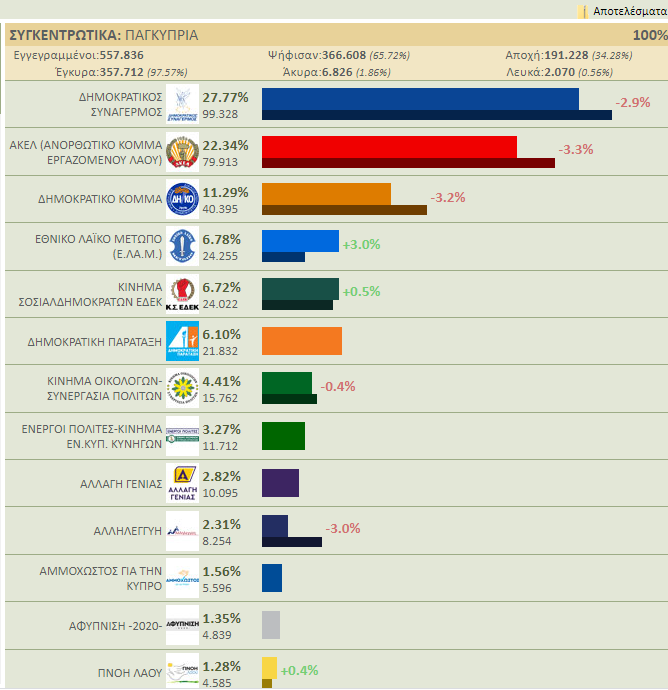KISA considers that the results of the parliamentary elections reflect the realities and developments of the last few years as well as those shaped by the pandemic. The rise of nationalism and racism on the one hand, insecurity and fear about the future and survival on the other, are the key determinants that led a large part of the electorate to voting for those forces that, irrespective of their role and responsibility for the widespread corruption, the erosion of institutions and the disintegration of the social fabric, inspired the feeling that they were more capable to manage the future and the upcoming challenges of society.
The forces of the opposition, with their focusing on issues of changing power, could not unfortunately also project proposals that would inspire the feeling that not only did they have better positions but also the ability to implement and manage successfully and with transparency the present and future challenges of society. This situation was compounded by their inconsistency, contradictions and timidity in, among others, issues of nationalism and racism.
KISA is of the opinion that one of the positive outcomes of the elections is the emergence of young, more capable political personnel in almost all political sides, who in many cases have banished more nationalist, populist and racist forces in their parties. However, this partial positive outcome cannot compensate for the risks and threats posed for the whole society by the significant rise of the extreme right and fascism.
ELAM nurtures and grows by the phenomena of nationalism, intolerance and racism. The doubling of its votes and parliamentary seats was the result of three important parameters:
- The extreme-right management of asylum and migration, the toxic rhetoric developed by the government side and especially the Minister of Interior to justify these policies, which was not only not disputed but it was actually assisted and supported by the majority of the mass media.
- The alarming developments in the Cyprus problem and the rhetoric of the government to explicate and convince society that it was not to be blamed for these developments contributed to the significant growth of nationalism in a large section of the Greek Cypriot community.
- After the conviction of the Golden Dawn as a criminal organisation and the imprisonment of its leadership, ELAM engaged in a systematic campaign that appears to have convinced a critical mass of the electorate that it has terminated all relationships with European neo-nazi groups and with the crimes of the Golden Dawn. It is also making many efforts to hide under the carpet of patriotism the nationalist hatred that it is fuelling and fomenting in society and infects the minds of especially young people.
KISA believes that the new rise of ELAM is extremely dangerous for society and calls on all parties, the mass media and civil society to contribute to stopping these dangerous for the whole of society and democracy itself phenomena.
We call on political parties not to proceed to any dealings and reciprocation with the extreme xenophobic right and nazism, despite the serious dilemmas resulting from the need to form majorities in parliament. As experience to date has shown, every act of cooperation with ELAM is not achieved without small and large trade-offs. Each and every such trade-off is utilised by this group to legitimise and strengthen its position and role in society and to poison it with racist and nationalist hate which, in turn, feed its reinforcement and consolidation.
Finally, KISA calls on civil society organisations, organised entities and collectives to improve and strengthen their channels of communication and coordination of their efforts to put an end to these phenomena and to promote an inclusive and cohesive society that will, under conditions of the rule of law, safeguard equal treatment and human rights for all people living in this society.
Steering Committee






